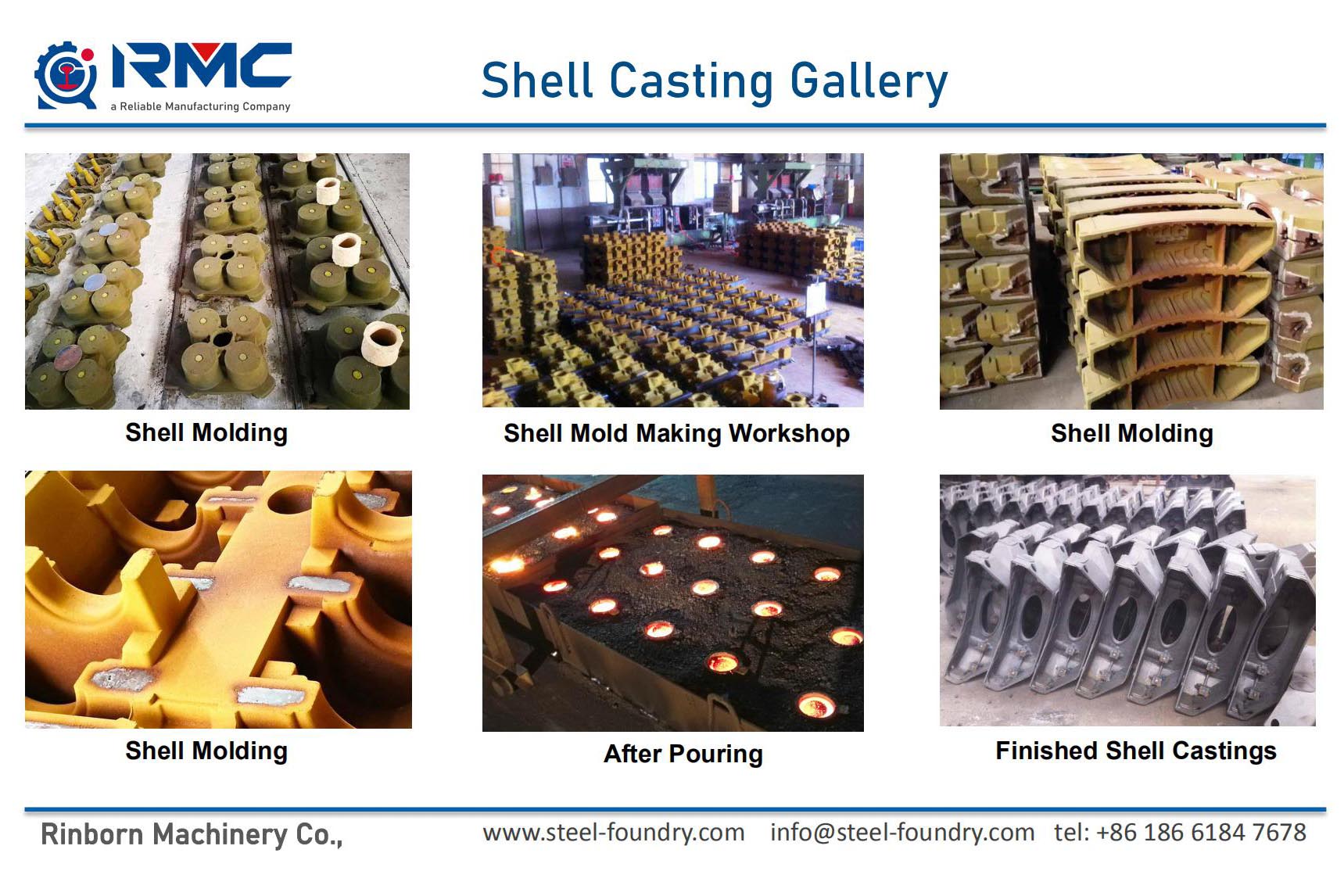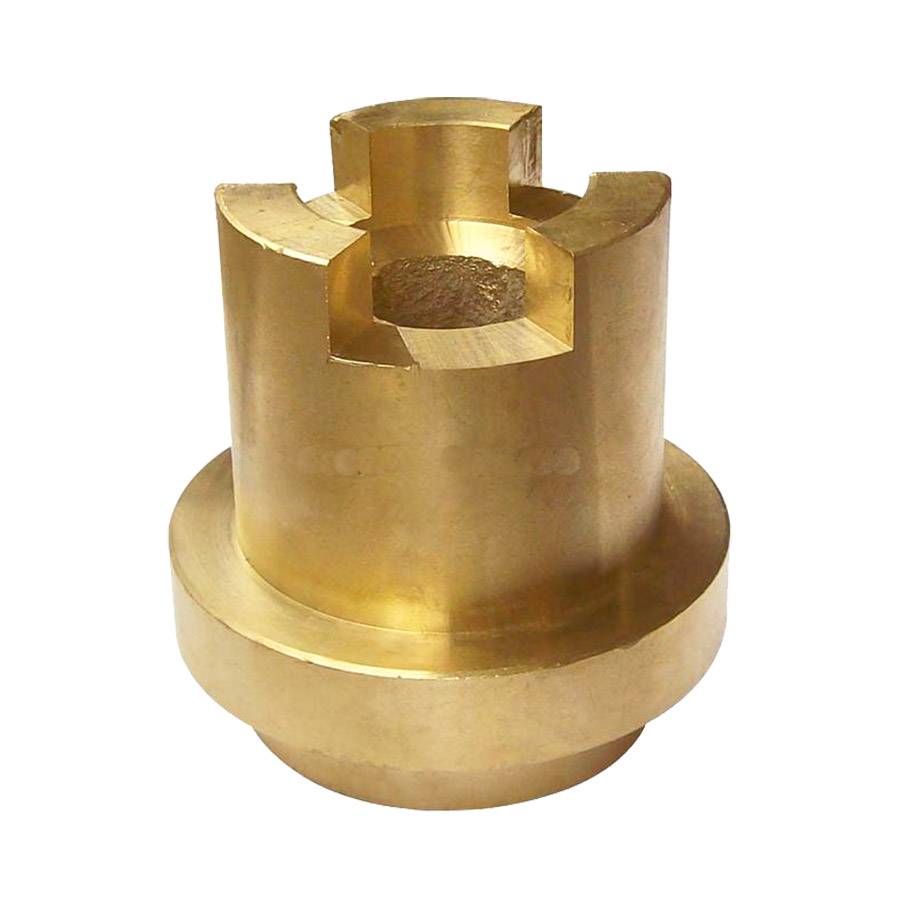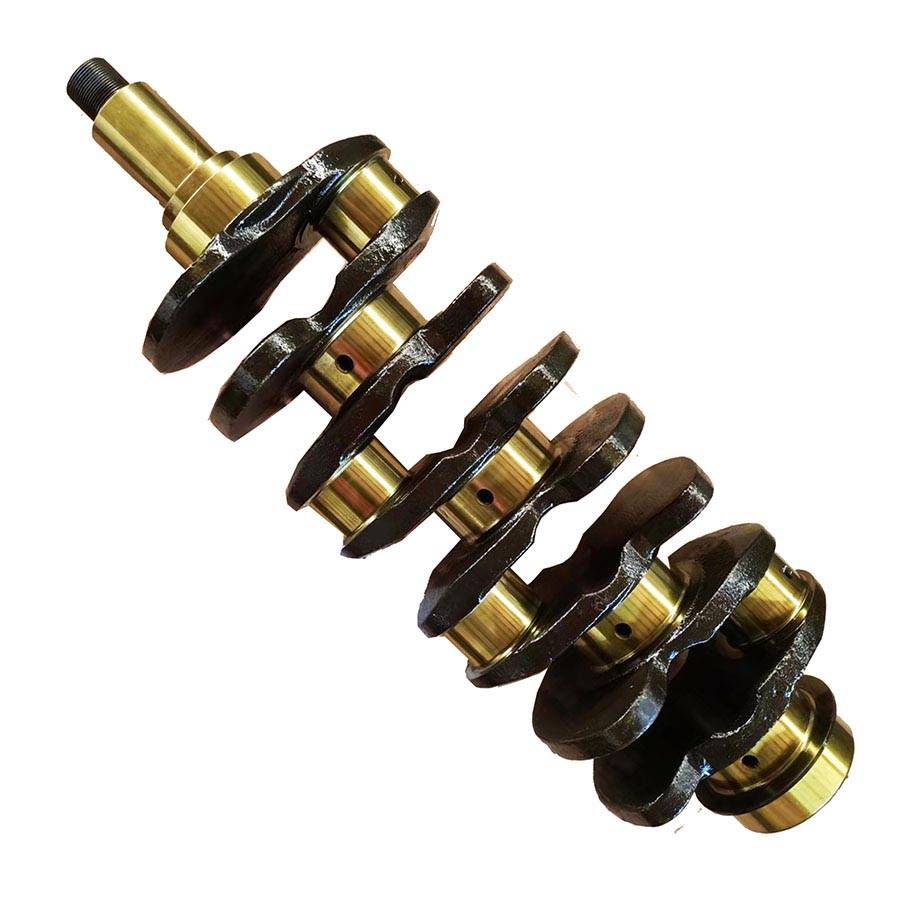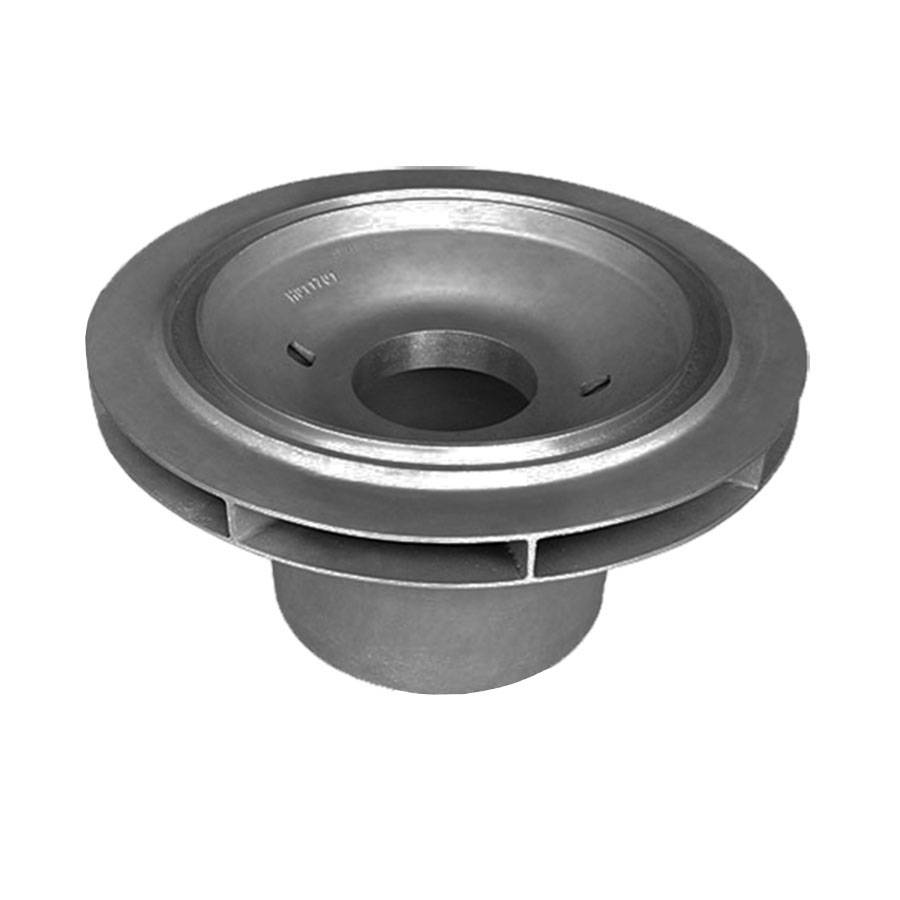Professional China Steel Shell Mold Casting - Brass No Bake Sand Mould Casting Product – RMC Foundry Detail:
At RMC Casting Foundry, we adopt the resin coated sand mould (no bake and selfhardening process) to cast the brass, bronze and other copper based alloys.
Brass castings are widely used in valve and pump field due to the excellent performance of the brass materials. At RMC Foundry, we mainly produce the brass castings by green sand casting, resin coated sand casting, investment casting and for large brass castings, we also adopt the lost foam casting and vacuum casting process. Generally, the brass castings produced by sand casting are the main category in our foundry.
A copper alloy with zinc as the main alloying element is usually called brass. Copper-zinc binary alloy is called ordinary brass, and ternary, quaternary or multi-element brass formed by adding a small amount of other elements on the basis of copper-zinc alloy is called special brass. Cast brass is used to produce brass for castings. Brass castings are widely used in machinery manufacturing, valve and pumps, ships, aviation, automobiles, construction and other industrial sectors, occupying a certain weight in heavy non-ferrous metal materials, forming cast brass series.
Compared with brass and bronze, the solid solubility of zinc in copper is very large. Under normal temperature equilibrium, about 37% of zinc can be dissolved in copper, and about 30% of zinc can be dissolved in the as-cast state, while tin bronze In the as-cast state, the mass fraction of solid solubility of tin in copper is only 5% to 6%. The mass fraction of solid solubility of aluminum bronze in copper is only 7% to 8%. Therefore, zinc has a good solid solution strengthening effect in copper. At the same time, most alloying elements can also be dissolved in brass to varying degrees , Further improve its mechanical properties, so that brass, especially some special brass has the characteristics of high strength. The price of zinc is lower than that of aluminum, copper, and tin, and it is rich in resources. The amount of zinc added to brass is relatively large, so the cost of brass is lower than tin bronze and aluminum bronze. Brass has a small solidification temperature range, good fluidity, and convenient smelting.
Because brass has the above-mentioned characteristics of high strength, low price and good casting performance, brass has more varieties, larger output and wider application than tin bronze and aluminum bronze in copper alloys. However, the wear resistance and corrosion resistance of brass are not as good as bronze, especially the corrosion resistance and wear resistance of ordinary brass are relatively low. Only when some alloy elements are added to form various special brass, its wear resistance and resistance corrosion performance has been improved and improved.
As a kind of self-harden sand, the no-bake furan resin sand is widely used for gray iron sand casting and ductile iron casting processes. The surface of the sand mold would be solidified to a hard situation after the coating is burned. Therefore, the furan resin sand casting process could be used to produce middle-sized and large-sized iron castings parts, from tens of kilograms to even tens of tons. With good surface quality, tighter dimensional tolerances and less casting defects, the furan resin sand casting processes could be used to produce the complex casting parts.
RMC utilizes the No-bake sand casting process for producing steel castings, stainless steel castings, ductile iron castings, and gray iron castings. In the No-Bake process, sand molds are formed by a wood or metal pattern. The sand of fine-grain is combined with a resin binder in a high-speed sand mixer and then drop off into a box containing the pattern. A few minutes later, the sand-binder mixture hardens itself and the mold is removed from the patterns. Sand Cores for creating the inside structure of the castings are made using the same process at the same time. After the cores and the exterior molds are assembled, they are closed and prepared for metal pouring. Certain materials, such as ductile iron castings, require special treatment of the metal prior to pouring. The No-Bake casting process is highly flexible as it allows iron castings and steel castings to be maintained to precise tolerances while also being able to handle part sizes from tens of grams up to tens of tons.
The Steps of No Bake Shell Casting Process:
No bake is a casting process that involves the use of chemical binders to bond the molding sand. Sand is conveyed to the mold fill station in preparation for filling of the mold. A mixer is used to blend the sand with the chemical binder and catalyst. As the sand exits the mixer, the binder begins the chemical process of hardening. This method of mold filling can be used for each half of the mold (cope and drag). Each mold half is then compacted to form a strong and dense mold. A rollover is then used to remove the mold half from the pattern box. After the sand has set, a mold wash may be applied. Cores, if required, are set into the drag and the cope is closed over the cores to complete the mold. A series of mold handling cars and conveyors move the mold into position for pouring. Once poured, the mold is allowed to cool before shake-out. The shake-out process involves breaking the molded sand away from the casting. The casting then proceeds to a casting finishing area for riser removal, casting finishing and finalization. The broken pieces of molded sand are further broken down until the sand is returned to grain size. The sand can now be either reclaimed for reuse in the casting process or removed for disposal. Thermal reclamation is the most efficient, complete method of no bake sand reclamation.
| Materials for Shell Mold Casting at RMC Foundry | |
| Metal & Alloys | Popular Grade |
| Gray Cast Iron | GG10~GG40; GJL-100 ~ GJL-350; |
| Ductile (Nodualar) Cast Iron | GGG40 ~ GGG80; GJS-400-18, GJS-40-15, GJS-450-10, GJS-500-7, GJS-600-3, GJS-700-2, GJS-800-2 |
| Austempered Ductile Iron (ADI) | EN-GJS-800-8, EN-GJS-1000-5, EN-GJS-1200-2 |
| Carbon Steel | C20, C25, C30, C45 |
| Alloy Steel | 20Mn, 45Mn, ZG20Cr, 40Cr, 20Mn5, 16CrMo4, 42CrMo, 40CrV, 20CrNiMo, GCr15, 9Mn2V |
| Stainless Steel | Ferritic Stainless Steel, Martensitic Stainless Steel, Austenitic Stainless Steel, Precipitation Hardening Stainless Steel, Duplex Stainless Steel |
| Aluminium Alloys | ASTM A356, ASTM A413, ASTM A360 |
| Brass / Copper-based Alloys | C21000, C23000, C27000, C34500, C37710, C86500, C87600, C87400, C87800, C52100, C51100 |
| Standard: ASTM, SAE, AISI, GOST, DIN, EN, ISO, and GB | |


Product detail pictures:

Related Product Guide:
No matter new customer or outdated client, We believe in extensive phrase and trusted relationship for Professional China Steel Shell Mold Casting - Brass No Bake Sand Mould Casting Product – RMC Foundry, The product will supply to all over the world, such as: Ghana , Pakistan , Uganda , All the imported machines effectively control and guarantee the machining precision for the items. Besides, we have a group of high-quality management personnels and professionals, who make the high-quality items and have the ability to develop new merchandise to expand our market home and abroad. We sincerely expect customers come for a blooming business for both of us.
Wide range, good quality, reasonable prices and good service, advanced equipment, excellent talents and continuously strengthened technology forces,a nice business partner.
-
Best Price for Super Duplex Stainless Steel Pre...
-
Big Discount Steel Casting Supplier - CNC Prec...
-
New Fashion Design for Brass Gravity Casting - ...
-
New Arrival China Gray Iron Shell Mold Casting ...
-
Ordinary Discount Ductile Iron Casting Supplier...
-
China Supplier Aluminium Gravity Die Casting - ...







